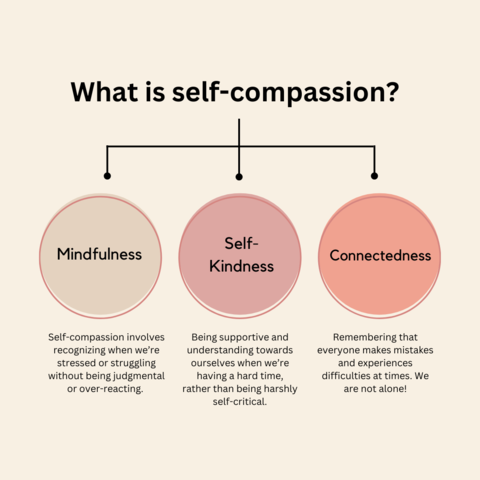The start of this school year marks a new season of my life. I am no longer a parent of a K-12 child.
That’s right, after 22 years, I’m officially an empty nester.
No more school supply lists, no more attendance calls, no more parent-teacher conferences, or school activities.
Gone are the days of tripping over piles of stinky shoes in the entryway or coming home to find five bonus kids in my basement playing video games and eating everything in the pantry.
I’m moving into a new space, and although I feel mostly ready and excited, I’m also experiencing intense bursts of anxiety, sadness, and guilt.
My daily cadence is changing – and for those of you who know me, you know I’m a creature of habit, so this is quite unsettling.
I feel sad about how quickly my years at home with my babies went by, and guilty that I was too often short-tempered with them and not the listener they needed.
Recently, my Aunt Jane reminded me that beginnings and endings are hard; we flounder for a bit until we gain our footing. When floundering, we often get lost or even stuck in all our hard and uncomfortable feelings and thoughts.
During these beginnings and endings (and lots of fluctuating emotions), we can often forget to practice self-compassion, giving ourselves the grace, kindness, and time needed to find our footing. (Yes, it takes practice, purposefully and repeatedly adding to our day until it becomes part of who we are and how we think.)
As you begin the start of another school year and experience all the feelings that come with a new adventure, I invite you to discover the power of practicing self-compassion and how it can bring you inner peace and boost your overall well-being.
What is Self-Compassion?
According to leading experts, self-compassion is treating yourself with kindness, care, and respect. It is the practice of being mindful of your feelings, and then taking action by showing yourself self-kindness and shared humanity; particularly, when you are experiencing pain related to uncomfortable feelings such as failure, shame, inadequacy, or guilt.
Research indicates that self-compassion is one of the most potent sources of coping and resilience available to us and has the potential to greatly improve mental and physical well-being (Neff, 2023). Regularly practicing self-compassion has been shown to reduce anxiety and related depression (Chris Germer, 2022).
- Do you feel guilty that you didn’t show up for your students in the way you had hoped today?
- Did you make a mistake with a colleague or with one of your children?
- Has a relationship with a friend, partner, or loved one recently ended?
Self-compassion can help you comfort negative emotions, heal painful memories, and challenge negative beliefs.
Dr. Kristin Neff, an associate professor of educational psychology at the University of Texas Austin and known for her groundbreaking work on self-compassion, was the first to define and measure self-compassion.
According to Dr. Neff, self-compassion has three core components: mindfulness, self-kindness, and common humanity. The three components of self-compassion are detailed below.

1. Mindfulness NOT Over-Identification
Mindfulness is often thought to be the first step of practicing self-compassion. To show care and kindness for someone in pain, we first need to know of their pain and where it comes from.
Mindful self-compassion involves turning inward and acknowledging your pain and where it is coming from. It is a willingness to observe our negative thoughts with openness and clarity in a non-judgmental way, noticing feelings just as they are without trying to deny or suppress them.
Mindful self-compassion is not the act of “over-identifying” thoughts and feelings, perseverating on the negative, and getting stuck in a space of unproductive sadness, guilt, or shame that doesn’t allow us to heal and move forward.
2. Self-Kindness NOT Self-Judgment
Self-compassion also requires the practice of self-kindness, the ability to be loving and understanding to oneself when we are experiencing uncomfortable or painful thoughts and feelings.
It requires us to acknowledge, rather than ignore our hurt or punish ourselves with self-judgment and condemnation.
Self-compassionate people recognize and accept that like all humans, they are imperfect and will experience failure, disappointment, and challenging times. Life can’t always go in the way that we have dreamed or might expect, and when we fight against reality, suffering often increases in the form of stress, frustration, anxiety, and self-judgment.
Instead of getting angry and hostile when life goes sideways, self-compassionate people are gentle and loving with themselves. Reality is accepted with empathy and tenderness, allowing us to move forward with composure and peace.
3. Common Humanity NOT Isolation
As Neff highlights, the definition of being human means that we are mortal, vulnerable, and imperfect. Self-compassion recognizes that we are all connected in our imperfect ways – both in our suffering and in our joy.
Oftentimes, when we are experiencing difficulties or painful feelings, we forget that we are not the only person suffering or making mistakes – we are not alone.
Self-compassionate people recognize that inadequacy and discomfort are part of a shared human experience. Taking a balanced approach to uncomfortable feelings and moments in our lives requires us to neither suppress nor exaggerate our feelings.
When practicing self-compassion, we relate personal experiences to others who are also suffering, putting our situation into a larger, more connected perspective and experience.
5 Ways to Bring Self-Compassion into Your Life
#1 Practice Mindfulness. The practice of being aware of our thoughts, emotions, and actions in a nonjudgmental way without trying to suppress or exaggerate them. This practice often includes recognizing your pain, where it comes from, and how it feels in your body. It’s important to note that mindfulness can be practiced during meditation, or during a daily activity.
#2 Care for your body. Go for a walk. Exercise. Take a rest. Eat something healthy. Massage your own neck, arms, feet, etc. Take a shower or bath. Put on comfortable clothes. Caring for your physical body is a critical part of self-compassion.
#3 Journal. Explore your thoughts and emotions through writing. Describe what is making you feel pain without blaming anyone, including yourself. Acknowledge your feelings without judgment, rather turn towards acceptance and tenderness.
#4 Spend time with loved ones. Setting aside time to be with people who can care for you and show you love, and support can help reduce stress, increase happiness, and provide a sense of security.
#5 Positive Self-Talk. Often, the best way to engage in positive self-talk is to first think of what you would say to a friend if they were experiencing something painful. Then, direct those same thoughts and sentiments toward yourself. Positive self-talk has been shown to encourage a growth mindset and reduce anxiety and stress.
Here’s to a New School Year
So, here we go again. Another year. Another adventure. Another opportunity to practice caring for ourselves to improve our overall well-being.
As I move into this new season of my life, I’m committed to staying curious, brave, vulnerable, honest, and kind to myself. I’m committed to acknowledging my regrets and sitting with my discomfort while recognizing that I am more than my mistakes and that my life is full of promise and purpose.
My hope is that you will show yourself this same grace and turn inward with love and acceptance as you move through the inevitable twists and turns of another school year.
I’m forever cheering you on. Take care.
Dr. V
Resources
- Neff, K., & Germer, C. (2018). The mindful self-compassion workbook: A proven way to accept yourself, build inner strength, and thrive. Guilford Press.
- Self-Compassion Guided Practices and Exercises: https://self-compassion.org/category/exercises/
- Transformative Effects of Mindful Self-Compassion: https://www.mindful.org/the-transformative-effects-of-mindful-self-compassion/
